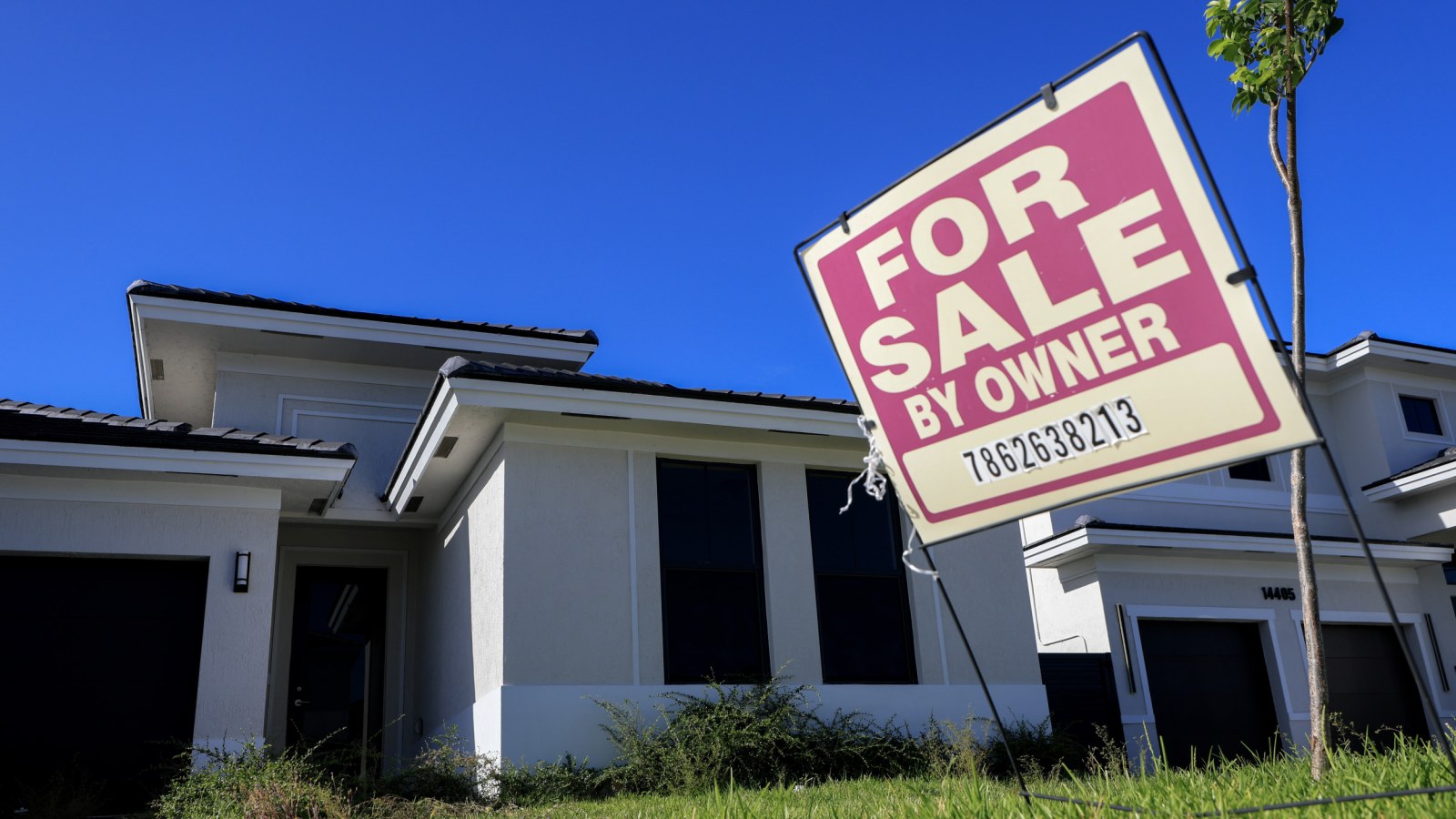By Giulia Carbonaro
Copyright newsweek

Florida’s housing market has “flipped” for homebuyers, according to real estate analyst Nick Gerli, but not the way they might have wished for.While the Sunshine State can solidly be considered a buyer’s market, as homes are taking the longest in the country to sell and inventory has risen by double-digits in recent months, locals are just not earning enough to afford the properties for sale.”The growth in inventory in Florida has started alleviating buyer’s affordability issues. Home values are down 4.7 percent over the last year, and now the salary needed to buy in Florida is down to $98,000, which is an improvement from several years ago,” Gerli, CEO of Reventure App, told Newsweek. “However, the market is still about two times more expensive than it was before the pandemic.”What Is Happening in Florida’s Housing Market?Redfin data shows that the median sale price of a home in Florida was $404,200 in July, down 1.3 percent from a year earlier. It marked the fifth consecutive month of year-over-year price declines, as the state’s housing market has experienced a stark slowdown since the start of the year due to booming inventory and falling demand.There were 224,165 homes for sale in the Sunshine State in July, up 9.3 percent from a year earlier, while the number of properties sold in the same month was down 7.3 percent from July 2024, for a total of 31,042.The reason for this pileup of homes on the Florida market is that many buyers in the state can no longer afford the properties for sale. For Gerli, this is because home price growth since the pandemic, which saw an explosive surge in demand, far outpaced wage growth.How Much Does It Cost To Buy a Home in Florida?Between 2008 and 2021, according to Reventure App, the median income in the Sunshine State was higher than the salary to afford a house. “Now it’s flipped,” Gerli said.Back in 2012, Gerli added, buyers could snatch up a home in Florida on an annual salary of $23,000. “At the time the typical monthly payment for buyers was $600 a month,” he said. But, at the height of the pandemic home-buying frenzy, the salary needed to buy a home in the state jumped dramatically.”From 2021 to 2022 alone, the salary you needed to buy a house in Florida went up from $46,000 to $86,000,” Gerli said. “This was due to mortgage rates increasing, combined with a spike in prices.”The cost to buy a house in the state peaked in 2024, when it reached $105,348. Now, the salary to afford a house in the state has fallen to $98,902, according to Reventure App estimates, down 7 percent from a year earlier.But this is still a lot higher than the state’s average income. “Right now, the median income in Florida is around $77,000, while the salary to afford a house is 28 percent higher,” Gerli said on social media.”While home values are declining in Florida, the average homebuyer there still needs to earn almost $100,000 to be able to afford a house,” he added. “Prior to the pandemic, you could earn $40,000 in Florida and afford to buy a house.”What Can Florida Buyers Expect Next?The once-red-hot Florida housing market has experienced one of the starkest corrections in the country since the pandemic, as an explosion in construction over the past couple of years has contributed to the recent growth in inventory, which is putting downward pressure on prices.The current trends suggest that home prices are likely to continue falling in the coming months, while potentially lower mortgage rates could ease buyers’ affordability challenges.However, improvements in affordability are unlikely to feel significant to many buyers in the state struggling with other issues—including high home insurance premiums and rising homeowners association fees.”A return to pre-pandemic affordability is unlikely in Reventure’s baseline forecast, as we expect prices to drop another 6.3 percent over the next 12 months,” Gerli told Newsweek.”However, if there were to be a serious recession, or increase in mortgage defaults in Florida, then further downside is possible. Overall, we think a 20 percent correction in the state is likely.”Update 9/16/2025 3:21 a.m. ET: This article has been updated with comment from Nick Gerli.



